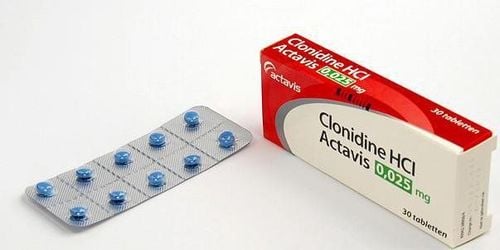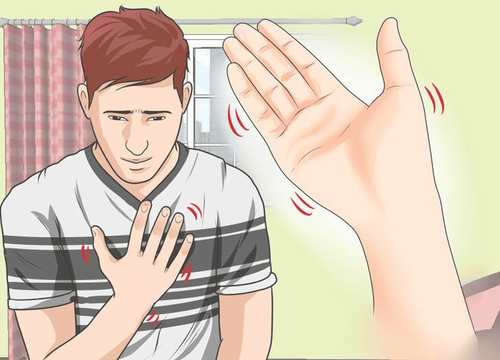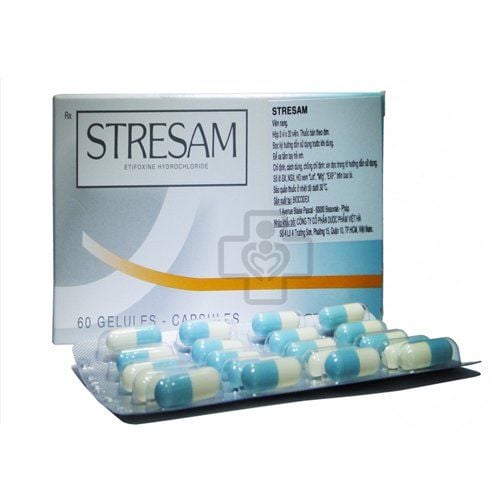This is an automatically translated article.
The gut-brain axis makes physical and chemical connections between the gut and brain through millions of nerves and neurons. Adding beneficial bacteria to the gut such as eating more foods containing omega-3, fermented foods, probiotics, and other polyphenol-rich foods, brain health can be improved.
1. How does the brain affect the intestines and stomach?
The brain affects the intestines and the brain affects the stomach through the gut-brain axis. They are linked not only physically but also biochemically by a number of factors:
1.1. Vagus nervous system and nervous system
Brain activity is governed by nerve cells, with a great role in transmitting information from the brain to organs in the body. There are 100 billion neurons in the human brain.
The gut contains 500 million nerve cells, which are connected to the brain through nerves in the nervous system.
The vagus nerve is one of the largest nerves connecting the gut to the brain. It can transmit information in two directions brain to gut and gut to brain.
Results from animal studies show that stress can inhibit signal transmission from the brain to the vagus nerve and cause many digestive problems.
Studies in people with irritable bowel syndrome (IBS) and Crohn's disease show impaired function of the vagus nerve.
A study on mice showed that despite the addition of probiotics to reduce stress, the cutting of the vagus nerve prevented the beneficial bacteria from working. This demonstrates that the vagus nerve plays an important role in the brain axis and the role of stress management.
1.2. Neurotransmitter
The brain affects the gut and vice versa through the connection of chemicals called neurotransmitters. They are created in the brain for the purpose of controlling feelings and emotions.
For example, the neurotransmitter serotonin contributes to feelings of well-being and also helps control the body clock. A large proportion of serotonin is made by intestinal cells and trillions of gut bacteria.
Gut bacteria also produce gamma-aminobutyric acid (GABA), a neurotransmitter that helps control feelings of fear and anxiety.

Não ảnh hưởng tới ruột thông qua trục ruột - não
1.3. Other Chemicals
Trillions of bacteria living in the gut can produce a variety of chemicals that affect brain functioning. Gut bacteria produce many short-chain fatty acids (SCFAs) such as butyrate, propionate, and acetate.
They make SCFAs by digesting fiber. SCFAs affect brain activity in a number of ways, such as reducing appetite.
Consumption of propionate may decrease food intake and reduce reward-related brain activity from energy-rich foods.
Butyrate and the bacteria that produce it are also important for the formation of the blood-brain barrier.
Gut bacteria also metabolize bile acids and amino acids to produce other chemicals that affect the brain.
Bile acids are chemicals produced by the liver that are normally involved in the absorption of dietary fats. However, they can also affect the brain. Studies in rats have shown that stress and psychological disorders reduce gut bacteria production of bile acids.
1.4. Immune system
The gut-brain axis is also connected through the immune system.
Gut and gut bacteria play an important role in the immune system and inflammation by controlling what gets into and out of the body.
An overactive immune system can cause inflammation, which is linked to a number of brain disorders such as depression and Alzheimer's disease. Lipopolysaccharide (LPS) is an inflammatory toxin produced by certain types of bacteria. When the intestinal barrier leaks, bacteria and LPS can enter the bloodstream causing an inflammatory response. LPS-induced inflammation is associated with a number of brain disorders including major depression, dementia, and schizophrenia.
2. Probiotics, Prebiotics and the gut-brain connection
Probiotics are live bacteria that provide many brain health benefits. However, not all probiotics are the same.
Probiotics that affect the brain are called "psychological microorganisms" which is a special name for biological products that have the ability to affect the brain. Symptoms of stress, anxiety, and depression may improve after taking certain types of probiotics.
For example, Bifidobacterium longum NCC3001 improves mild to moderate irritable bowel syndrome, anxiety or depression. The amount of the stress hormone in the body, called cortisol, is significantly reduced thanks to galacto oligosaccharides.

Probiotics là vi khuẩn sống mang lại nhiều lợi ích sức khỏe cho não bộ
3. What foods improve brain and gut function?
Certain food groups are especially beneficial for gut and brain health. Here are some of the most important foods:
Omega-3 fats: Found in fish and also in large amounts in the human brain. Studies in humans and animals show that omega-3s can increase the good bacteria in the gut and reduce the risk of various types of brain disorders. Fermented foods: Fermented foods like yogurt, kefir, sauerkraut, and cheese all contain healthy microorganisms. High-fiber foods: Whole grains, nuts, fruits, and vegetables all contain prebiotic fiber that's good for gut bacteria. Prebiotics can reduce stress hormones in humans. Polyphenol-rich foods: Cocoa, green tea, olive oil, and coffee all contain polyphenols, which are digested by gut bacteria, helping to increase healthy gut bacteria and improve cognition. Foods rich in tryptophan: Tryptophan is an amino acid that is converted into the neurotransmitter serotonin, which improves brain health. Tryptophan is found in foods like turkey, eggs, and cheese. The brain affects the intestines and the brain affects the stomach through the gut-brain axis. Therefore, in order for the organs in the body in general and the brain and digestive organs in particular to be healthy, you should maintain a reasonable diet, combined with regular physical activity.
Please dial HOTLINE for more information or register for an appointment HERE. Download MyVinmec app to make appointments faster and to manage your bookings easily.
References: health.harvard.edu, hopkinsmedicine.org, healthline.com













